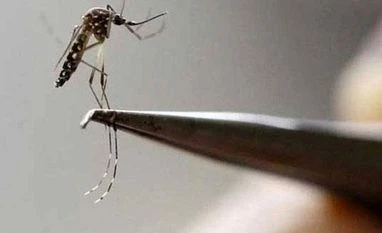Despite concerted efforts, barriers to effective prevention and treatment persist, perpetuating the cycle of transmission; Malaria is a disease that has plagued humanity for centuries and continues to pose a significant threat to global public health. India bears a significant burden. To effectively battle this disease, we should address these obstructions extensively and adapt our ways to deal with the developing scenario of this illness.
India contributes around 79% of the malaria cases in southeast Asia, as per a recent report of 2024 in the Clinical Epidemiology and Global Health journal and faces unique difficulties in its attempts towards elimination.
World Malaria Day 2024: Theme
The theme for World Malaria Day 2024 is “Accelerate the fight against malaria for a more equitable world.” The theme focuses on the attempts to eliminate the disease completely and to educate and inform people to prevent it from reaching more people.
Malaria Day: Causes of Malaria
The dangerous mosquito-borne illness is caused by the Plasmodium parasites that spread through infected female Anopheles mosquito bites. The disease is caused by five parasitic species i.e. P. falciparum, P. vivax, P. malariae, P. ovale and P. knowlesi. The first is only harmful to humans, while the last one, P. knowlesi, causes the disease to spread to macaques and monkeys.
World Malaria Day: Symptoms and Transmission
Fever, headache, and chills are some of the most common symptoms that appear within 10 to 15 days of the bite. However, people who live in endemic areas may not experience any symptoms due to their immunity.
Only mosquito bites from infected mosquitoes can transmit malaria which isn't communicable and can't pass starting with one individual and then onto the next. There are more than 400 species of female Anopheles mosquitoes, of which approximately 40 are considered vector species and are capable of transmitting the disease.
More From This Section
Malaria Day 2024: Treatment and Prevention
Bed nets, insecticide spraying, staying indoors, maintaining a clean environment, and many other proven strategies can all be used to prevent malaria. Malaria is also prevented from spreading through early diagnosis and complete treatment.
As per the WHO, World Malaria Day focuses on eliminating the effects of malaria in the following ways:
• Putting an end to discrimination and stigma.
• Involving communities in the process of health decision-making.
• Bringing medical services near where individuals reside and managing essential medical care.
• Addressing factors that increment malaria dangers.
• Remembering malaria control medications for widespread health coverage.
)